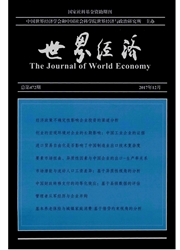

 中文摘要:
中文摘要:
本文重新检验收入不平等与经济增长的关系,区分了由环境差异导致的收入不平等(机会不平等)和由努力差异导致的收入不平等(努力不平等)的差异,利用2003—2013年的CGSS微观数据测算了衡量机会不平等与努力不平等的基尼系数,并构建增长回归模型,检验两类不平等对中国经济增长的影响效应。研究结果显示:收入不平等与经济增长之间不存在显著关系,但努力不平等对经济增长具有显著的正向促进作用,机会不平等对经济增长具有显著的负向抑制作用。本文认为,努力不平等对经济主体的劳动和投资行为具有正向激励效应,这在一定程度上抵消了机会不平等对经济主体生产性行为带来的逆向激励,从而弱化了收入不平等对经济增长的不利影响。
 英文摘要:
英文摘要:
In this paper, we attempt to interpret the relation between income inequality and economic growth by re-examining these two phenomena. First, we distinguish the opportunity inequality caused by environmental variations from effort inequality induced by differences in effort. Then, we calculate the Gini coefficient, which measures the opportunity inequality and effort inequality, by using 2003-2013 CGSS data. Finally, we construct the growth regression model to examine effects of these two kinds of inequality on China's economic growth. The empirical results show that the effort inequality has a significantly positive effect on economic growth, while the opportunity inequality has a significantly negative effect. Meanwhile, the real income inequality is not significantly related to economic growth. Therefore, we argue that the effort inequality, which is caused by the heterogeneity in individual behaviors, has a positive effect on labor and investment behavior. To a certain extent, it offsets the negative incentive caused by opportunity inequality, and thus weakens the adverse effect of income inequality on economic growth.
 同期刊论文项目
同期刊论文项目
 同项目期刊论文
同项目期刊论文
 期刊信息
期刊信息
